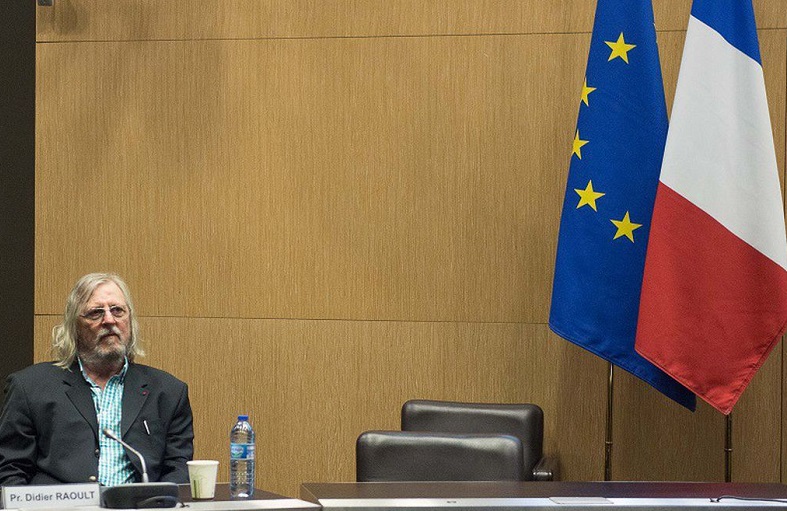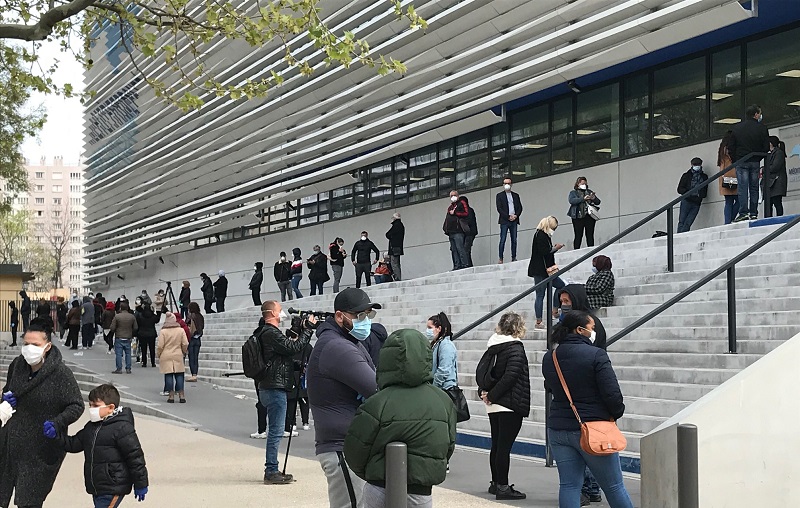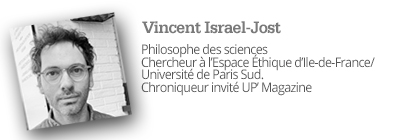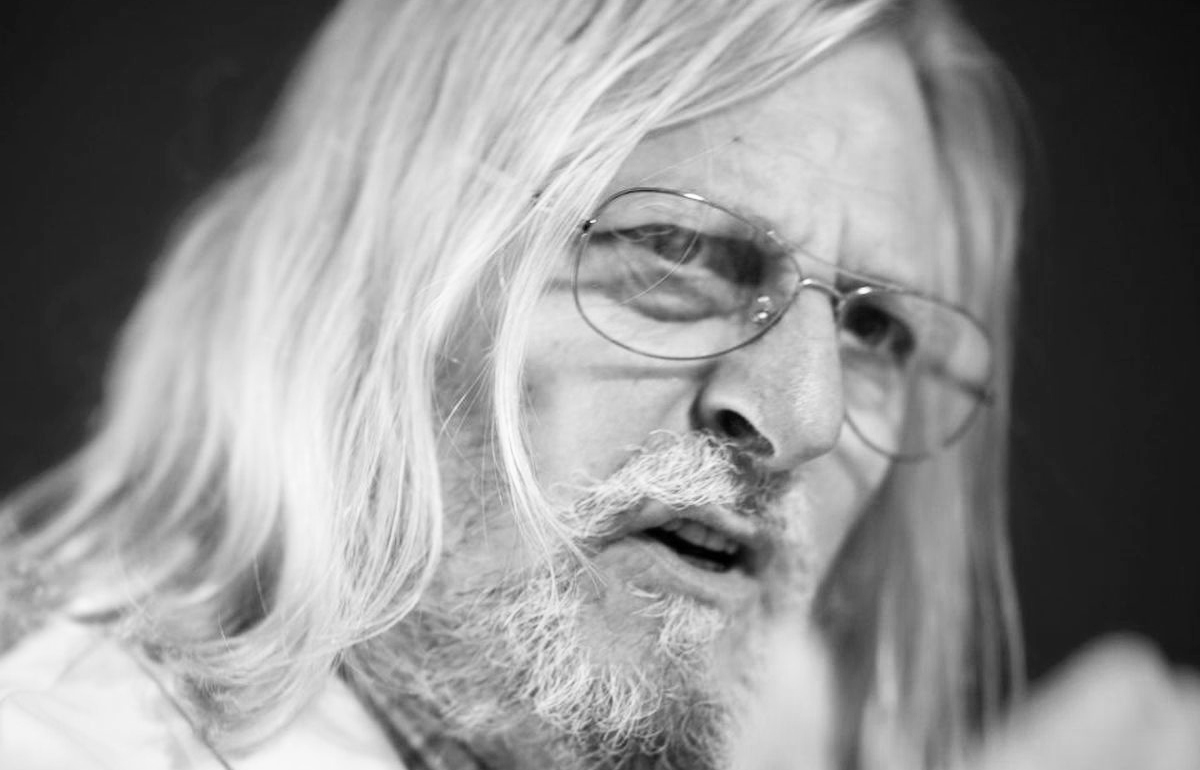Comme une enquête policière, l’épistémologue Vincent Israel-Jost s’est penché pour UP’ Magazine sur l’incroyable controverse provoquée en pleine crise du Covid-19 par l’Hydroxychloroquine et a pu décortiquer, dans ses ressorts les plus intimes, le système de parole du professeur le plus connu de France : Didier Raoult.
EXCLUSIF
Avec les quelques mois de recul dont nous disposons maintenant et les nombreux rebondissements auxquels nous avons assisté sur l’hydroxychloroquine (HCQ), le temps semble venu d’entreprendre une analyse de ce qui s’est passé. Nous ne disposons certes toujours pas d’un dénouement sur cette controverse publique qui permettrait de reprendre toute l’histoire à la lumière d’une réponse claire à la question « Est-ce que, oui ou non, l’HCQ est un traitement au Covid-19 ? », mais c’est justement une bonne chose pour l’analyse. Il serait en effet difficile, si nous disposions d’une telle réponse ferme, de reprendre les contributions des uns et des autres autrement qu’en attribuant bons et mauvais points en fonction du résultat désormais connu. Dans le cas présent, l’incertitude planant toujours, c’est à une analyse plus circonspecte qu’il convient encore de se livrer, ignorante de l’issue d’une controverse encore en cours, mais par là-même plus réceptive aux arguments des uns et des autres qui doivent encore être considérés sur un pied d’égalité.
Pour aborder les problèmes soulevés par cette controverse publique, c’est-à-dire cette dispute scientifique qui a été largement suivie, commentée et influencée par le public, le terme même de controverse ne peut être prononcé sans évoquer son personnage principal, celui dont on peut dire qu’il a le plus contribué à faire d’une question scientifique une controverse, le professeur Didier Raoult.
Figure dominante du domaine des maladies infectieuses en France, spécialiste mondialement reconnu, directeur de l’IHU Méditerranée, le professeur Raoult allie à cette reconnaissance et ce pouvoir institutionnel une facilité déconcertante à prendre la parole pour exposer ses vues d’une manière qui a beaucoup séduit et en tout cas laissé peu indifférent.
Le ton est généralement posé, un mélange de sérieux, de badinage et d’âpreté parfois ; les arguments scientifiques sont la plupart du temps compréhensibles et le décryptage des jeux de pouvoir et d’argent, des dynamiques institutionnelles ou des travaux faits par d’autres équipes apporte une touche de nouveauté par rapport aux communications scientifiques souvent plus austères et centrées sur une seule et même question.
Mais ce qui domine et qui fait vraiment le succès de ses interventions, c’est la liberté de ton, l’absence totale de concessions par rapport à ses convictions qui semblent pouvoir être exposées sans aucun filtre. Il peut quitter un plateau quand il veut, accabler les plus hauts décisionnaires scientifiques, se saisir pleinement de la liberté académique qu’il revendique pour s’exprimer en restant toujours au plus près de qui il est et ce en quoi il croit. Les résultats sont assez prévisibles : tout le monde n’est pas derrière lui, notamment dans sa propre communauté scientifique, mais le soutien populaire, dans les médias et chez bon nombre de personnalités ne se dément pas, faisant du professeur Raoult la star incontestée de la crise en France.
Or de cet état de chose découle une question un peu embarrassante. Puisque nous avons affaire à un homme qui jouit à la fois d’une position scientifique, institutionnelle et médiatique ultradominante, et que cet homme a pris fait et cause pour l’HCQ, comment se fait-il que la question ne soit pas tranchée ? Comment se fait-il que les travaux menés par l’IHU Méditerranée qui, selon les dires du professeur Raoult, démontrent une claire utilité de l’HCQ dans la prise en charge des patients atteints de Covid-19, ne closent pas la question ?
Tous les ingrédients sont pourtant réunis : un leader et leader d’opinion doté d’une véritable aura, qui pilote le fleuron français des instituts de recherche en maladies infectieuses, animé d’une conviction forte et ayant agi en conséquence, traitant plusieurs milliers de personnes et publiant plusieurs articles. Et pourtant, après plusieurs mois, et sans présumer de ce qu’il adviendra lorsque de nouveaux éléments paraîtront encore sur la question, l’HCQ est toujours loin de faire l’unanimité et la tendance est même plutôt défavorable dans le milieu scientifique.
D’où cette situation inconfortable dans laquelle nous nous trouvons, entre la parole d’autorité et qui semble pleine de bon sens du professeur Raoult et l’image plus large que propose la science : comment nous situer et en vertu de quoi ? Le public, forcément touché par une question des traitements au Covid-19 qui le concerne, et obligé depuis le début de faire son chemin au milieu de sources discordantes, n’a d’autre choix que de soupeser à la fois les arguments des uns et des autres, mais aussi leur crédibilité, celle de leurs commentateurs, etc. Chacun est ainsi amené à appréhender cet épisode en épistémologue, s’interrogeant sur le chemin qui mène à la connaissance, dont on redécouvre avec cette controverse combien il est semé d’embûches !
L’ambition de ce texte est donc d’accompagner une réflexion épistémologique populaire et de mettre au jour les éléments qui expliquent pourquoi, en dépit d’une situation hyper-favorable au professeur Raoult, celui-ci peine à convaincre sur le plan scientifique.

Le sachant de Marseille
Un terme s’est graduellement imposé dans les interventions du professeur Raoult : celui de « sachant ». Préféré à celui de spécialiste ou d’expert, il désigne évidemment une personne qualifiée pour se prononcer sur un domaine particulier en vertu d’un savoir. Mais contrairement au « savant », terme éculé, à l’étymologie semblable, mais qui désignerait un scientifique doté d’une culture vaste et d’une grande sagacité, le sachant semble beaucoup plus directement en prise avec le savoir.
Le terme ne renvoie ainsi plus tellement à une capacité à acquérir le savoir, mais plutôt à un savoir qui, chez le sachant, serait déjà là. L’importance de ce terme chez le professeur Raoult (lors de son audition à l’Assemblée nationale par exemple, à 1:04:25 ou 1:07:15) serait anecdotique si le mot ne donnait pas l’impression qu’une connaissance possible, potentielle, est, chez le sachant, présente dès le départ.
Ce mot semble ainsi synthétiser toute une manière de concevoir la science, une véritable philosophie des sciences propre à Didier Raoult, qu’il nous est désormais possible de reconstruire, et qui pourrait bien jeter un éclairage nouveau sur notre manière de comprendre la controverse de l’HCQ.
Rembobinons jusqu’au début de l’affaire, soit la publication qui a lancé la controverse : une étude menée à l’IHU Méditerranée [1] qui prétendait mettre en évidence des effets bénéfiques de l’HCQ et surtout de la combinaison HCQ + Azithromycine contre le Covid-19.
Beaucoup de choses ont été reprochées à cette étude. Scientifiquement tout d’abord, sa méthodologie laissait à désirer selon de nombreux spécialistes puisqu’une cohorte d’une vingtaine de patients servait de base pour tirer ces conclusions, ce qui est statistiquement très faible, mais aussi parce que les patients n’ayant pas pu suivre le traitement (dont un mort) n’avaient pas été pris en compte.
D’autres réserves étaient également exprimées sur un processus de publication ayant lieu du jour au lendemain, qui laissait entendre qu’il n’y avait pas eu de véritable processus d’évaluation par des pairs, dans un journal dont l’éditeur en chef, Jean-Marc Rolain, est aussi co-auteur de l’étude [2].
La première question que chacun doit se poser est donc celle-ci : cette première étude de l’IHU Méditerranée a-t-elle permis de poser les bases d’une connaissance scientifique en faveur de l’HCQ ? Au vu des critiques qui ont véritablement plu sur cette étude, la réponse est non.
Il ne s’agit pas ici de soulever les problèmes de cette étude, ni de donner un avis sur les problèmes les plus sérieux ou ceux qui n’en sont pas. Il faut simplement observer que la réception de cette étude a été pour le moins glaciale et que le monde scientifique, à quelque niveau qu’on le considère (la science en général, ses journalistes, ses commentateurs, la science de la virologie et des maladies infectieuses, en France ou à l’international…) ne s’est pas déclaré convaincu par cette étude.
Or la connaissance scientifique se distingue de la conviction personnelle en ceci qu’elle exige une validation par les autres. Ce qui fait le caractère véritablement scientifique d’une connaissance, c’est un certain nombre de mécanismes (peer-reviewing, communications lors de colloques, reproduction d’expériences par d’autres équipes, etc.) par lesquels d’autres que vous peuvent s’emparer de ce que vous affirmez et se convaincre à leur tour, à l’aide de ce que vous leur fournissez comme preuves et explications, de ce dont vous étiez convaincu.
Ce qui s’est enrayé dès ce premier essai rapporté par l’IHU Méditerranée, c’est le mécanisme d’adhésion aux croyances partagées au sein de cet institut. Que l’on trouve les critiques sur ce travail justifiées ou pas est une autre affaire, que je ne traite pas ici. Il s’agit seulement pour nous tous qui ne sommes ni micro-biologistes, ni virologues, ni spécialistes de maladies infectieuses, de reconnaître au moins cette chose qui me semble indiscutable : les scientifiques n’ont, pour une large majorité, pas été convaincus par ce travail.
Pour couper court à un possible malentendu, insistons bien sur la distinction entre soin et recherche et précisons que la controverse qui nous préoccupe ne porte aucunement sur la manière de soigner les gens. Personne n’a rien trouvé à redire aux actions menées à l’IHU Méditerranée pour tester puis soigner les gens, y compris avec le protocole HCQ + Azithromycine et même en étant dans l’incertitude quant aux effets de ces médicaments.
Les actions menées sur place ont dans l’ensemble été plutôt saluées ; donc le problème qui est soulevé ici ne porte pas sur le « faire », mais sur le « dire ». Qu’il ait fallu prendre des risques pour soigner comme on peut, sans pouvoir s’assurer qu’on fait le meilleur choix de médicament, c’est une évidence, vécue par tous les soignants. Ce qui est contesté, c’est cette idée qui a été cultivée par le professeur Raoult, selon laquelle on était d’ores et déjà sûr de faire au mieux avec le fameux protocole puisqu’on disposait de preuves que ça marchait.
En somme, tout le monde s’accordait pour prendre des risques face à l’incertitude, mais pas pour dire en même temps qu’on n’en prenait pas et qu’on avait déjà toute la connaissance nécessaire. C’est donc là le point sur lequel se concentre la polémique : peut-on parler d’une véritable connaissance scientifique sur laquelle pourraient s’appuyer les autres scientifiques et soignants, ou bien les efforts menés à Marseille du côté de la recherche (le versant du soin étant, je le répète une dernière fois, applaudi) n’ont-ils pas abouti ?
L’épistémologie du sachant
Il n’y a évidemment pas eu qu’une première et courte étude issue des travaux de recherche de l’IHU Méditerranée mais il est important d’admettre, comme point de départ, que cette étude était nulle et non avenue sur le plan de la connaissance scientifique, à en juger par la reconnaissance qu’elle a reçue des pairs. Comme un inspecteur qui, après collecte d’indices et de témoignages sur la scène d’un crime, se fait sa propre opinion et soumet cet ensemble d’indices et la mise en récit qu’il en fait à un tribunal, le scientifique doit se mettre en devoir de convaincre, sans garantie que cela fonctionne, mais en mettant toutes les chances de son côté pour que les preuves apportées soient aussi percutantes que possible. En dernière instance, c’est bien au jury de se déclarer convaincu par cet ensemble et ce n’est que dans ces conditions que le verdict s’aligne sur l’hypothèse de l’inspecteur, la transformant en vérité judiciaire. Un scientifique doit donc jouer le jeu de la même manière et tenter d’apporter une preuve qui facilite autant que possible la conviction des autres scientifiques, leur ralliement à l’hypothèse proposée (ici : « l’HCQ + Azythromycine fonctionne comme médicament contre le Covid-19 »), condition nécessaire à l’établissement d’une connaissance scientifique. La question porte donc ici sur la qualité de la preuve apportée par le professeur Raoult.
Or, ici, intervient l’élément qui va à l’encontre de tous les avantages que possède Didier Raoult (son prestige académique, son charisme et le pouvoir qu’il détient déjà) : il se comporte en « sachant », se qualifie de « sachant » et à cause de cela, parle et agit en homme qui a déjà fait ses preuves, et qui ne doit donc plus apporter tellement de soin à en fournir. Ce registre de la preuve des données, de l’argumentation, de la justification, est au fondement de l’épistémologie classique. Mais ce n’est pas exactement de cette manière que le professeur Raoult envisage l’établissement de la connaissance.
Revenons donc sur le rôle-clé de cette étude initiale dont la qualité a été décriée. Cette étude se distingue de celles qui ont suivi, en ce que le professeur Raoult entend s’appuyer sur ce qu’elle révèle d’effets positifs de l’HCQ pour considérer comme acquis le bénéfice associé au fameux protocole. Dès cette première étude, il est donc entendu du côté de l’IHU Méditerranée que, sur le plan de la connaissance, les lignes ont bougé dans le bon sens. Dans cette logique, si l’on sait que l’HCQ est bénéfique, il n’est plus question de ne pas traiter tout le monde ainsi. Les études suivantes seront donc purement observationnelles, sans l’élément de comparaison du groupe-témoin.
Comment voulez-vous dire à quelqu’un qu’on dispose d’un traitement mais qu’on ne va pas le lui administrer pour que cette personne puisse servir de point de comparaison ? La rhétorique est imparable, mais elle rendra difficile l’exploitation des études de taille plus importante (80, puis 1061 et enfin 3737 patients) puisqu’avec des effets bénéfiques de l’HCQ qui, au mieux, sont très faibles (d’autres études l’auraient détecté sinon, il y en a des dizaines de par le monde), l’absence de groupe-témoin donne peu d’espoir pour pouvoir y lire quelque chose de concluant.
Cette première étude sur une vingtaine de patients, qui a servi de point de bascule pour soutenir la stratégie de soin et de recherche de l’IHU Méditerranée, et joue donc un rôle crucial dans la conception raoultienne de la connaissance sur les traitements au Covid-19, ne peut-on pourtant pas dire qu’elle est suffisante pour initier la connaissance sur le sujet ? Comment le professeur Raoult la défend-il ?
Interrogé en fin d’audition de la commission d’enquête à l’Assemblée nationale par le député Philippe Berta (3:02:20) qui soulève précisément la question d’une réception de cette étude par les scientifiques qui ne pouvait être que mauvaise, Didier Raoult répond : « C’est de l’éthique basale […] quand on a la preuve que quelque chose marche, on arrête l’essai. Et donc, je suis désolé que vous n’aimiez pas mon essai, moi je l’aime beaucoup, et je trouve qu’il a toutes les bases d’un essai, de la seule manière de faire des essais qui est de faire des essais comparatifs et d’avoir une différence significative. »
La mauvaise réception globale de cet essai est donc reportée sur le seul Philippe Berta à qui cet essai ne plairait pas, et un mouvement argumentatif est mis en marche : quand on a la preuve que quelque chose marche, on n’est plus dans l’essai. Mais justement, la question est que cette première étude n’a pas été reçue comme démontrant que quelque chose marche !
Après quelques phrases visant à défendre l’idée que cette première étude tient la route méthodologiquement (un argumentaire dont la bizarrerie est discutée ici ), l’argument se conclut par un mouvement que l’on retrouve souvent chez le professeur Raoult : « Je vous assure que je suis un très grand méthodologiste » avant de poursuivre : « Je suis un grand scientifique, je sais ce qu’est un essai, et je peux vous dire, il y a une dizaine des traitements que j’ai inventés qui sont dans tous les livres de référence médicaux. Et celui-là y sera aussi » et de conclure « J’étais avant un grand scientifique et je suis resté un grand scientifique après avoir publié ça. »
C’est une chose rare, en science, de voir quelqu’un s’appuyer à ce point sur les succès passés pour justifier de la fiabilité des travaux présents. Le prestige acquis d’une personne dit bien sûr quelque chose de ce dont cette personne est capable et cela compte pour apprécier sa crédibilité, mais ce que nous voyons ici, c’est le développement d’une épistémologie du prestige, puisque c’est le premier geste qui est accompli pour venir en soutien aux études décriées : réaffirmer sa propre grandeur scientifique.
On trouve d’innombrables cas de ce même schéma, par exemple sur BFM-TV le 30 avril [3] « Moi je suis un vrai scientifique et en plus je suis un épistémologiste, j’étudie l’histoire des sciences et je fais des cours d’épistémologie depuis 25 ans » (7:30).
Mais le meilleur témoignage de l’établissement de cette stratégie consciente ou inconsciente est sans doute procuré par une autre vidéo, datée du 28 février [4], dans laquelle le Pr. Raoult répond à la question qui lui est posée sur les débats entre scientifiques et médecins quant à l’utilité et l’efficacité de l’HCQ de la manière suivante. Se dirigeant vers son ordinateur, il pointe la difficulté pour les non-initiés à s’y retrouver parmi les avis d’experts mais présente un outil de recherche en ligne très simple, qui va nous permettre de mieux comprendre ce qu’est un expert : expertscape.com. Vous rentrez le domaine d’expertise (par exemple ici « maladies infectieuses » c’est-à-dire « communicable diseases »), vous appuyez sur « show experts » et vous voyez : « Je suis le premier expert (mondial) et non seulement ça mais si vous regardez les endroits dans lesquels ça se passe […] vous trouvez que les seuls experts mondiaux qui soient lisibles en France […] sont ceux de Marseille ». Voici donc réaffirmée par une source externe, internationale, objective (la séquence s’achève sur quelques secondes de plan fixe sur le site expertscape.com avec le slogan Fast. Easy. Free. Objective) l’autorité scientifique du Pr. Raoult, qui sera donc le mécanisme fondamental qui nous sera offert pour adhérer à ses thèses.
On pourrait parler d’une « épistémologie du sachant », de celui qui sait, dès le départ. Ce sachant, lorsqu’il pense quelque chose, sa qualité de sachant agit comme un coup de tampon qui valide sa pensée et la transmute en connaissance scientifique. Dès lors, aussi médiocre soit la forme donnée à la preuve, on comprend que ce registre de la preuve telle qu’on l’exige habituellement en science ou au tribunal n’est pas central. La preuve ici est accessoire, comme le vestige d’une tradition à laquelle on consent encore à participer par sens du protocole, mais dont la valeur épistémologique est tout à fait symbolique. Ce qui fait preuve ici, c’est bien la qualité de sachant qui est régulièrement rappelée par le principal intéressé.
L’enfer, c’est les autres
Le schéma d’établissement de la connaissance raoultienne, après quelques mois de mise en œuvre, aboutit très clairement à deux types de populations. D’un côté, ses soutiens, ceux qui s’inclinent devant son autorité et reçoivent la parole du professeur dans un rapport parfaitement vertical.

Et puis de l’autre, sans être forcément hostiles au professeur ni au traitement ou aux stratégies qu’il prône, il y a ceux pour qui la parole de Didier Raoult est considérée avec attention, mais comme une parole scientifique qu’il est possible de critiquer, à laquelle on peut répondre ou dont on peut douter, cette fois dans un rapport horizontal. C’est dans cette deuxième catégorie que l’on trouve une altérité, c’est-à-dire de véritables consciences avec lesquelles il s’agit de composer : les convaincre, débattre avec eux, échanger idées et arguments, etc.
Or force est de constater que si la première catégorie de personnes ne pose pas de problème à Didier Raoult – les collaborateurs, les soutiens et tous ceux qui l’écoutent – il n’en est pas de même avec les seconds, les autres, ceux qui ne sont pas blottis sous son aile. Pour ceux qui n’ont pas été convaincus pas l’épistémologie du sachant, c’est-à-dire par le ton assuré, les titres honorifiques et les rappels de sa grandeur scientifique, et qui donc demandent de meilleurs arguments scientifiques, le professeur Raoult a une réponse toute faite : « Je m’en fous », « Ça m’indiffère ».
L’une des choses tout à fait frappantes d’ailleurs, étant donné l’importance qu’a pris le personnage et les avis qu’il peut donner sur à peu près tous les aspects de la crise, est qu’on ne l’a jamais vu se mettre en situation d’horizontalité et participer à un quelconque conseil dans lequel il figurerait au même titre que d’autres.
Le récit de son bref passage dans le conseil scientifique de la crise Covid-19 est éloquent. Se qualifiant lui-même d’OVNI ou d’extra-terrestre dans ce conseil lors de son audition à l’Assemblée nationale (1:11:00), on se demande ce qui a rendu la situation intenable. Il répond : « C’était pas possible. C’était un groupe qui se connaissait entre eux, qui travaillait depuis des années ensemble, c’était le groupe REACTing de l’INSERM et donc je suis arrivé là-dedans – je pense que c’est le Président qui a souhaité que je fasse partie de ce groupe – donc je suis arrivé secondairement dans un groupe de gens qui avaient l’habitude de travailler ensemble, qui avaient des idées très précises, qui avaient déterminé ce qu’il fallait faire avant que j’arrive et j’étais pas d’accord ».
Est-ce là tout ce dont ce groupe s’est rendu coupable ? D’avoir l’habitude de travailler ensemble, d’avoir des idées précises (on n’imagine pas tellement Didier Raoult arriver là en ayant les idées floues) et d’avoir probablement attendu pour en bouger d’être convaincu par autre chose qu’une note d’autorité de la part du professeur Raoult ? L’idée de siéger avec des pairs et de participer à l’élaboration d’une stratégie discutée était à ce point insupportable ? Un peu plus tôt, déjà interrogé sur ce conseil scientifique, il répond (49:10) : « C’est pas un conseil scientifique ! Je sais pas ce que c’est. Moi, le premier conseil scientifique que j’ai dirigé c’était en 1989, je m’excuse, hein, ça fait longtemps. Et j’en ai dirigé dans ma fac, au ministère de la recherche en 1993, donc je sais ce que c’est… C’est pas ça. » Et l’on comprend mieux alors qu’un conseil scientifique digne de ce nom, c’est un conseil qui a l’immense mérite d’être dirigé par le professeur Raoult, c’est-à-dire où l’on retrouve la verticalité qui lui est indispensable.
Les autres, donc.
Les scientifiques qui ne sont pas convaincus par les travaux de l’IHU Méditerranée ? Tous en conflit d’intérêt avec Gilead.
Les journalistes ? Incapables de prendre la mesure d’un champ trop compliqué pour eux, déformant toujours la connaissance, le professeur Raoult leur préfère le canal direct, la chaîne YouTube de l’IHU dont une série s’intitule « On a le droit d’être intelligents » face au crétinisme qui règne en dehors de l’IHU.
Les politiques ? Mal entourés quand il n’est pas là.
Les autres, c’est aussi la folie qui s’est emparée d’une société apeurée, la déraison qui, selon lui, pousse certains à considérer que l’HCQ est « un poison mortel » (BFM-TV Apolline 12:50 et 13:25) ou à s’en détourner parce que Trump ou Bolsonaro l’ont soutenue. L’IHU Méditerranée comme havre de paix, de rationalité, un lieu raisonnable face à la démesure, la démence et l’obscurité. Tous les ingrédients sont désormais là pour relire la controverse de l’HCQ à la lumière de ce paysage épistémologique pittoresque.
Le savoir sur l’hydroxychloroquine
On l’a vu, les scientifiques dans leur ensemble donnent des avis qui ne permettent pas de conclure sur le fait que l’HCQ est un traitement efficace du Covid-19. Nous étions donc et demeurons dans l’incertitude, ce qui n’est au fond pas si grave, aussi bien pour nous, le public, qui n’est pas obligé de prendre parti, que pour les soignants qui peuvent administrer un médicament sans certitude, en fonction de leur expérience, savoir ou intuition. Seulement, l’incertitude se mêle aussi à une autre impression, celle que cette incertitude est elle-même incertaine… Il y a un sentiment qui plane au-dessus de nous et qui nous donne l’impression que le stade de l’incertitude est dépassé. Et pourtant, à ce sujet, nous avons vu :
– qu’au niveau purement scientifique, celui des publications, preprints et communications de l’IHU Méditerranée, le monde scientifique n’était pas convaincu ;
– que les arguments d’autorité régulièrement distillés par le professeur Raoult dans le cadre de son épistémologie du sachant convenaient bien pour remporter la bataille médiatique, beaucoup moins pour s’imposer sur la scène scientifique.
Restent alors à considérer les chiffres de l’IHU Méditerranée qui témoignent, eux, d’une réussite certaine. Mais c’est une réussite qui porte sur une stratégie beaucoup plus large que la stratégie thérapeutique puisqu’elle inclut des tests systématiques et une prise en charge à un niveau qui n’a peut-être pas été celui de la plupart des autres centres. De quoi témoigne alors la faible mortalité ? D’une réussite d’ensemble, mais dont on ne peut pas exclure qu’elle soit indépendante des effets bénéfiques du fameux protocole.
Quant à l’usage massif qui a été fait de l’HCQ, en France et dans le monde, ce n’est malheureusement pas non plus un indicateur fiable de ses effets bénéfiques. Il fallait bien traiter les gens avec ce qui était disponible, mais puisque le professeur Raoult tente de renforcer son argumentaire en parlant de cet usage massif, tandis que cet usage massif a eu lieu en raison du buzz engendré par le professeur Raoult sur l’HCQ, et non de preuves, on ne fait que tourner en rond.
Au final, dans un plaidoyer qui relève désormais plus d’une mise en accusation systématique des autres, de leur incompétence, de leur mauvaise foi ou carrément de leurs conflits d’intérêt, le professeur Raoult n’a réussi qu’une chose : faire en sorte qu’on s’embrouille.
À qui profite alors la confusion, le conflit sans grande volonté de résolution, la fragmentation d’un paysage de la connaissance auquel on ne comprend plus rien ? À celui qui passe son temps à dire : « Je m’en fous, j’ai pas besoin d’être d’accord avec vous », c’est-à-dire celui qui peut jouir de sa position de leader à la fois scientifique et médiatique. En définitive, le public se trouvera au moins devant une option lisible, et saura toujours vers qui se tourner.
Deux modèles de science
Cet épisode de l’HCQ nous incite à penser la science sous l’angle politique, et plus précisément à nous poser la question du rôle que joue autrui dans l’établissement d’une connaissance à caractère scientifique. Alors que dans la conception habituelle de la science, autrui intervient de manière déterminante comme une réceptivité différente qu’il faut être capable de rallier, et dont le ralliement va participer d’une validation qui donne son caractère scientifique à la connaissance, le mécanisme mis en œuvre chez Didier Raoult est bien distinct. Il renvoie autrui au rôle de pur récipiendaire d’une connaissance dont la validité scientifique est déjà acquise puisque seule compte l’origine de la connaissance : le sachant.
À quoi servent alors les autres, ceux qui sur expertscape.com ne pointent qu’à la 10e, la 100e ou la 1000e place ? Dans le modèle classique de la science, les travaux qu’ils mènent, leurs communications et leurs retours critiques sur les travaux des autres contribuent à une science qui, parce qu’elle s’est ouverte à ces altérités, peut finir (et finit souvent) par faire consensus, c’est-à-dire par créer du commun. C’est l’un des enjeux majeurs, pour la science, que de prétendre à l’établissement d’une culture, d’une rationalité et de valeurs communes et cela n’empêche en rien certains scientifiques de sortir du lot par des contributions originales et fécondes, voire révolutionnaires. C’est ainsi d’ailleurs que les contenus scientifiques valides sont passés de génération en génération et que nous pouvons encore nous les approprier aujourd’hui.
À l’inverse, lorsqu’une contribution auto-proclamée renversante n’est pas reçue comme telle, mais que les sachants de 2e, 3e et Ne ordres (selon des critères qu’un autre article devrait être réservé à tailler en pièces) sont renvoyés à une illégitimité pour intervenir dans ce qu’est la connaissance scientifique, il ne faut pas donner cher de la pérennité de cette contribution. À chacun alors de se saisir de cette controverse publique et de ses enjeux pour mener une réflexion salutaire autour de ces problématiques fondamentales qui mêlent science et démocratie.

[1] Gautret et al. (2020) Hydroxychloroquine and azithromycin as a treatment of COVID‐19 : results of an open‐label non‐randomized clinical trial. International Journal of Antimicrobial Agents – In Press 17 March 2020 – DOI : 10.1016/j.ijantimicag.2020.105949
[2] Voir cette page qui renvoit à toutes les ressources nécessaires : https://www.redactionmedicale.fr/2020/04/covid-19-comment-r%C3%A9tracter-larticle-hydroxychloroquine-and-azithromycin-as-a-treatment-of-gautret-p-.html
et notamment à ces commentaires d’Elisabeth Bik, microbiologiste néerlandaise et spécialiste d’intégrité scientifique : https://scienceintegritydigest.com/2020/03/24/thoughts-on-the-gautret-et-al-paper-about-hydroxychloroquine-and-azithromycin-treatment-of-covid-19-infections/
[3] Page YouTube de BFMTV, vidéo intitulée ENTRETIEN EXCLUSIF. Didier Raoult se confie à Apolline de Malherbe sur BFMTV. Diffusé en direct le 30 avril2020. https://youtu.be/cj4bGVszZP8
[4] Vidéo du 28 février 2020 sur la chaîne YouTube IHU Méditerranée-Infection intitulée : Chloroquine : pourquoi les Chinois se tromperaient-ils ? https://youtu.be/mJl2nPHAo2g













bon article mais malgré tout une interprétation : « HCQ qui, au mieux, sont très faibles (d’autres études l’auraient détecté sinon, il y en a des dizaines de par le monde » : il y a eu plusieurs études qui ont déclaré des effets bénéfiques à ce traitement : vérifiez le béotien que je suis réagit en pensant que bien que le suivi médical de l’ IHU Méditerranée doit être bien supérieur aux autres centres , cela n’explique pas l’importante différence de résultats en les comparant Marseille à Lyon ou Paris ou à la pitié Salpêtrière ou ailleurs en France. cela n’explique… Lire la suite »
En ce qui concerne les conflits d’intérêts, on remarque que Raoult n’a pas déclaré contrairement à l’éthique habituelle des publications qu’il recevait des financements de Sanofi, un fabriquant d’HCQ.
Il semble que les pays qui ont adopté le protocole HCQ + azithromycine dès les premiers symptômes s’en sortent relativement mieux (que ceux qui ont attendu les résultats des essais randomisés en double insu du type Discovery): le Maroc, le Sénégal, le Congo, la Tunisie etc… ça devrait donner à réfléchir. L’autre question qui se pose c’est que ce protocole n’a jamais été essayé tel que décrit par l’IHU dans les grands essais randomisés sauf pour des cas très graves quand la charge virale est faible et que c’est le système immunitaire qui surréagit avec le fameux « orage cytokinique ». Il… Lire la suite »
Ce qui peut aussi poser à réfléchir, c’est que les travaux publiés dans des revues à comité de lecture estiment que l’HCQ avec ou sans azythromycine sont au mieux sans effet. J’exclue de la liste, l’article controversé du Lancet. Les « vieux médicaments » sont la seule solution pour obtenir une autorisation « rapide » d’utilisation. C’est ce à quoi de nombreuses équipes s’attèlent. Pour finir, Raoult n’intéresse que les français et les fans de Jair Bolsonaro et de Trump. Ces derniers ne sont pas connus pour être amis de la méthode scientifique.
Tous des fans de Trump et Bolsanoro ? Voilà une sentence digne d’un esprit fermé et autoritaire .
Quid de l’entreprise de déstabilisation menée par certains laboratoires ? Des moyens financiers et humains ont été investis pour tronquer certaines études dont celles du LANCET; Nous ne sommes pas « SUR UN PIED D’ÉGALITÉ » Comme le dit l’auteur de l’article. C’est une entreprise de désinformation et de menaces qui a été entreprise à un niveau mondial. C’est ce déséquilibre des forces en présence qui a interpellé l’opinion publique. C’était David contre Goliath. Le combat scientifique s’est doublé d’un combat moral quoiqu’on en pense. Ce combat moral c’est le Professeur Raoult qui l’a gagné. Dont acte ! Et il faut reconnaître… Lire la suite »
Voilà un article bien troussé! Vous feriez un excellent procureur jésuite au temps de l’inquisition. En fait votre analyse est d’emblée biaisée car ce qui est crédible pour vous c’est la reconnaissance du plus grand nombre face à une minorité de vrais sachants. Aucune interrogation sur les motivations des experts qui ne soignent pas. Et comme d’habitude aucune référence aux résultats de la méthode Raoult dans laquelle le traitement à sa part comme tout le reste. Enfin je vois que vous êtes chercheur et philosophe. Peut être pourriez trouver un jour?